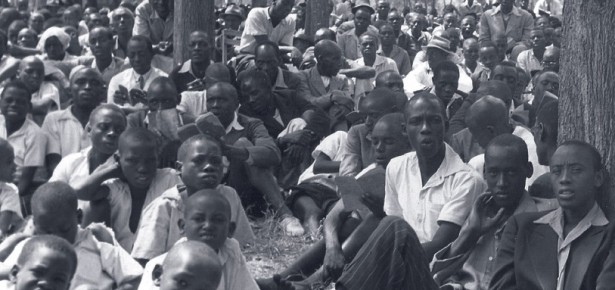
The area studies framework has greatly enabled scholarship on Africa. But it has also obliged us to slot the subjects of our research into spatial and temporal containments.
The people whose history we investigate did not always orient their culture and politics around the confinements of geography. The revivalists who are the subject of my own book were avid readers of the foundational book of English literature: John Bunyan’s The Pilgrim’s Progress. It was very often the second book (after the New Testament) to be published in Africa’s vernacular languages. Like Bunyan’s protagonist, the eponymous man Christian, African converts laid down their attachments to their native countries and set off on a pilgrimage toward a heavenly city. Like Bunyan’s protagonist, they blocked their ears to the pleas of their kith and kin, leaving their families behind. Like Bunyan’s protagonist, they valued displacement as a sign of progress. The movement they built was not defined by geographical boundaries. They used the technology of communication—airmail, the telegraph, the newsletter—to project themselves into an intercontinental ecumene, a space where British and African converts, together, practiced autobiographical work. Revivalists would not be bound by geography or by culture. In Revival conventions, in their engagements with new media and in their careful self-editing they made themselves sojourners, cosmopolitans whose home lay over a far horizon.
I have written a book—entitled Ethnic Patriotism and the East African Revival—about these mobile, displaced, pilgrim, cosmopolitan people and published it on an African Studies series. The book’s title locates them within a geographical space and within a particular timeframe: 1935 to 1972. The book has won the major book prize from the African Studies Association, and it’s also been given the African history prize from the American Historical Association. It will be assigned for students of African history to read, and some of them will (I hope) take the book’s insights into new fields. The Library of Congress has categorized the book under BR 115, where texts that concern ‘Christianity in relation to special subjects’ are kept. Through these procedures revivalists have been made a subject of scholarly attention. But by the same actions their radical disinvestment from geography has been foreclosed; their activist configuration of time has been compressed into a chronological timescale; and their cosmopolitan Christianity has been made relevant to the ‘special circumstances’ of eastern Africa.
By opening up a space in the library, the curriculum, and the university faculty, the area studies framework has greatly enabled scholarship on Africa. But it has also obliged us to slot the subjects of our research into spatial and temporal containments that they would not recognize as their own.
Catch up with Part One of Dr. Peterson’s post here.
Latest Comments
Have your say!